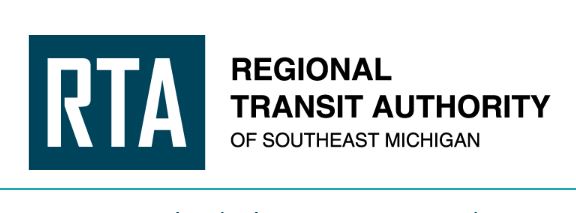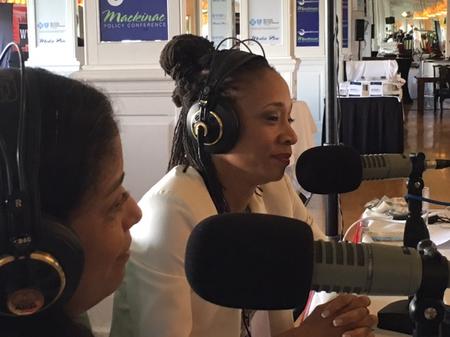No RTA Vote in Southeast Michigan This Year [VIDEO, TRANSCRIPT]
The RTA board declined to even vote on sending the plan to voters, stalling regional efforts another year.


The Regional Transit Authority board today declined to vote on sending a plan to southeast Michigan voters this fall, ending any chance it will be on the November ballot.
The regional plan, proposed earlier this year by Wayne County Executive Warren Evans and supported by Detroit Mayor Mike Duggan, would have levied a 1.5-mill regional tax, raising $5 billion over 20 years.
Bridge Magazine’s Chastity Pratt Dawsey covered the non-vote and spoke with WDET’s Sandra Svoboda about the transit plan and why officials won’t send it to voters.
Click on the audio link above to hear their conversation. An edited transcript is below.
Other WDET Transit Conversations:
See Wayne County Executive Warren Evans’ Proposal for Regional Transit in SE Michigan [MAP]
How Did We Get Here? A Visual Timeline of Mass Transit in Southeast Michigan
Detroit Businesses Discuss Whether The Region Can Be Competitive, Attract Talent
Sandra Svoboda: What happened at the RTA board meeting today?
Chastity Pratt Dawsey: The board declined to vote on whether to put this tax in front of voters. Essentially the board said, “We’re not going to even vote on putting a tax before voters because we know that we don’t have the votes.” They knew that Oakland and Macomb representatives on the board weren’t going to go for it.
Sandra Svoboda: What were the objections from the Oakland County representatives, and then what were the objections from the Macomb County representatives?
Chastity Pratt Dawsey: So on the RTA board, the Oakland County and Macomb County representatives both said, “Look we have the SMART bus millage on the ballot to be voted on, and we don’t want people getting confused. We don’t want two transportation-related issues on the ballot. That’s just not going to be a good thing.” And also Bridge, we wrote a story a couple weeks ago saying that this was going to happen. The board was not going to put this before voters in 2018. It was a dead deal because Oakland County has this huge problem with the way that the RTA board is governed and also has a huge problem with the fact that outer-ring suburban folks don’t want to pay for this. They just don’t. So Oakland wants new legislation to change the way RTA runs and also new legislation to allow suburban homeowners who are opting out of SMART bus service to also be able to opt out of RTA.
Sandra Svoboda: What’s the balance between the objections to transit as a system and this particular proposal?
Chastity Pratt Dawsey: The Oakland and Macomb folks are saying, “Look, we don’t object to transit in general, we object to this plan.” Also the timing. The problem with transit in this plan is they’re saying from the taxing authority to the footprint of the RTA, lots of stuff is yet to be worked out. I think that people are afraid that this thing is never going to happen. You know, in truth, no one is saying it’s never going to happen, but we know it’s not going to happen in 2018.
Sandra Svoboda: With a new governor that will be leading in Lansing next year, does that offer any insight into how transit could be directed from that office in Lansing?
Chastity Pratt Dawsey: As you know, Sandra, the Detroit Journalism Cooperative — WDET, Bridge Magazine (Michigan Radio, Detroit Public Television, Chalkbeat Detroit and New Michigan Media) — we interviewed all the gubernatorial candidates. They talked about transit, they talked about a lot of stuff. We don’t know, whoever ends up running Lansing from the governor’s office, whether they’re going to put their stamp on transit in southeast Michigan. There’s just no way to tell.
Here are the 2018 Michigan gubernatorial candidates talking about transit:
Sandra Svoboda: They had a wide array of responses to the question about what their transit policy would be like, specifically for southeast Michigan. So that’s still a big question mark. But what is next for the Regional Transit Authority?
Chastity Pratt Dawsey: They look at this plan which is called Connect Southeast Michigan, and they try and figure out how it can be changed so that everyone can buy in, and they also go to the legislature and figure out how the Regional Transit Authority’s taxing area and the Regional Transit Authority’s governance can be changed so that everyone can go along with it.
